
Find Help
More Items From Ergsy search
-

How does inheritance tax apply to life insurance policies?
Relevance: 100%
-
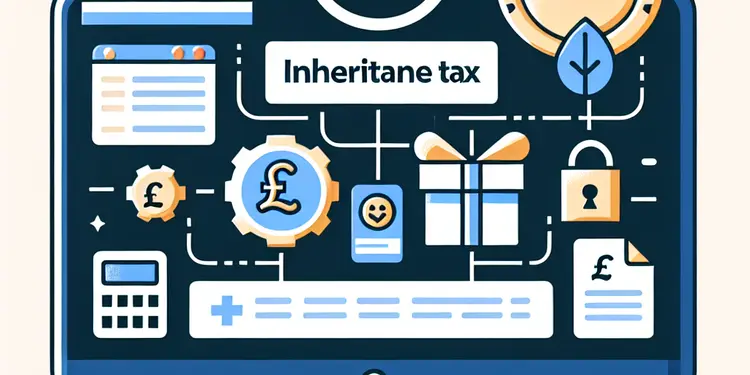
How does inheritance tax affect life insurance policies?
Relevance: 99%
-

Are life insurance payouts subject to Inheritance Tax?
Relevance: 91%
-
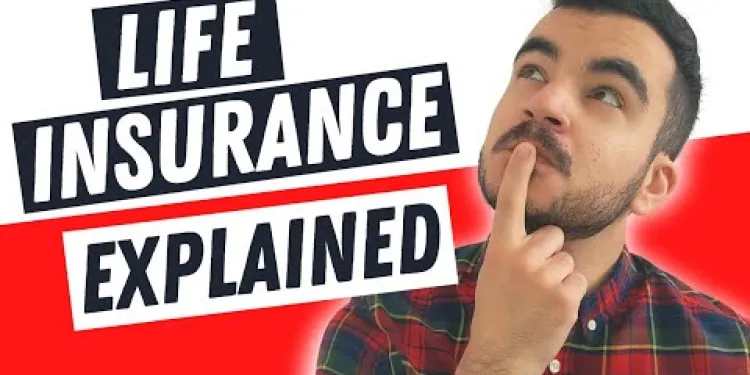
Should You Get Life Insurance UK | Life Insurance & Life Assurance
Relevance: 63%
-

Life Insurance Difference between Unit Linked and With Profit Policies
Relevance: 63%
-

What is inheritance tax in the UK?
Relevance: 60%
-

What is Inheritance Tax?
Relevance: 59%
-

What is inheritance tax in the UK?
Relevance: 57%
-

When do I need to pay Inheritance Tax?
Relevance: 56%
-
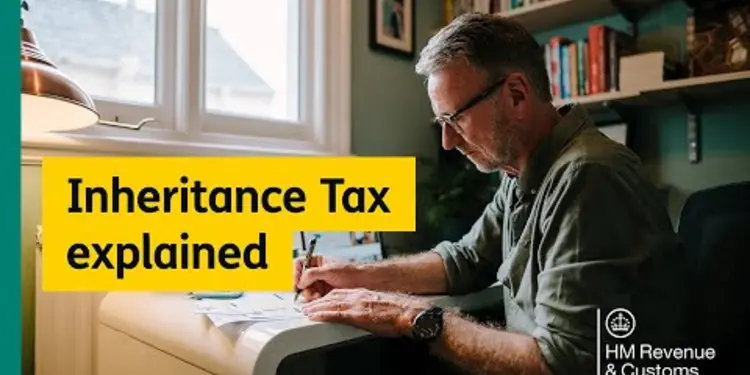
What is Inheritance Tax?
Relevance: 55%
-

What is inheritance tax?
Relevance: 53%
-

How is inheritance tax calculated?
Relevance: 53%
-

Does life insurance cover funeral costs?
Relevance: 51%
-

Are there deductions available for inheritance tax?
Relevance: 51%
-

Who pays the inheritance tax?
Relevance: 51%
-
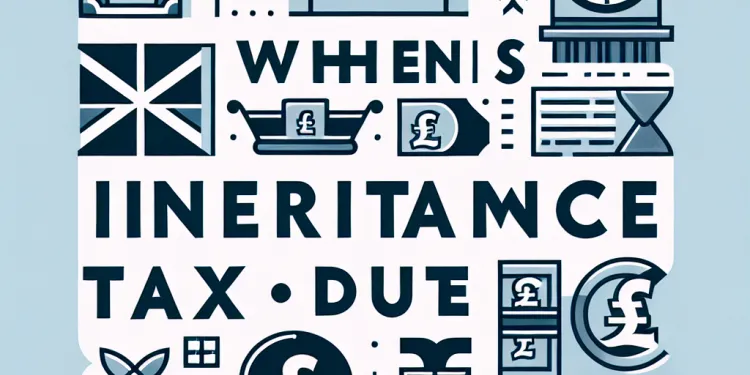
When is inheritance tax due to be paid?
Relevance: 51%
-

Are there tax-free thresholds for inheritance tax?
Relevance: 50%
-

When is inheritance tax due?
Relevance: 50%
-

How can I plan efficiently to mitigate inheritance tax?
Relevance: 49%
-

Who is responsible for paying Inheritance Tax?
Relevance: 48%
-

What assets are subject to inheritance tax?
Relevance: 48%
-

What forms do I need to complete for Inheritance Tax?
Relevance: 47%
-

Are there professional advisors for inheritance tax planning?
Relevance: 47%
-

Can inheritance tax be deferred?
Relevance: 47%
-

Is it possible to reduce the Inheritance Tax bill?
Relevance: 47%
-

Do I pay Inheritance Tax on a property I inherit?
Relevance: 47%
-

Are there any exemptions or reliefs available for Inheritance Tax?
Relevance: 47%
-

How is Inheritance Tax (IHT) dealt with after death?
Relevance: 47%
-

How can one reduce the inheritance tax burden?
Relevance: 46%
-

Are there any other reliefs available from inheritance tax?
Relevance: 46%
-

Is there a difference between inheritance tax and estate tax?
Relevance: 45%
-

Do all beneficiaries pay the same inheritance tax rate?
Relevance: 45%
-

How do I value the estate for Inheritance Tax purposes?
Relevance: 45%
-
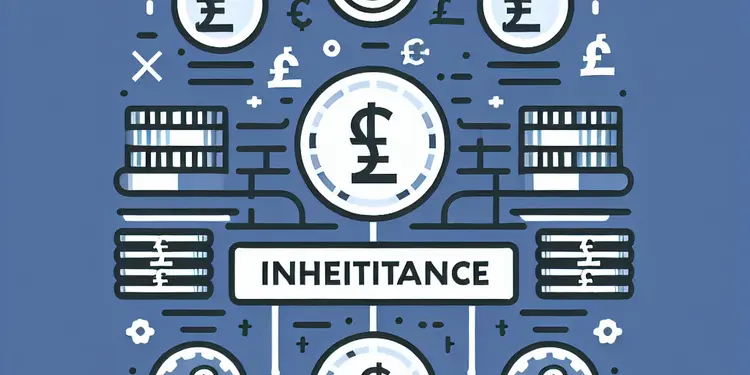
Can Inheritance Tax be paid in installments?
Relevance: 45%
-

Which countries impose inheritance tax?
Relevance: 44%
-

Can Inheritance Tax be claimed back?
Relevance: 44%
-

What happens if Inheritance Tax is not paid on time?
Relevance: 44%
-

What is the process for paying inheritance tax?
Relevance: 43%
-

Do unpaid tax debts affect Inheritance Tax calculations?
Relevance: 43%
-

Do spouses have to pay inheritance tax?
Relevance: 43%
Understanding Inheritance Tax on Life Insurance Policies in the UK
In the UK, inheritance tax (IHT) can apply to life insurance policies, but the specifics depend on how the policy is structured. Generally, life insurance proceeds are considered a part of the deceased's estate and could be subject to inheritance tax if the total value of the estate exceeds the IHT threshold. As of 2023, the inheritance tax threshold, also known as the nil-rate band, is £325,000. Any part of an estate above this amount is typically taxed at 40%.
The Role of Trusts in Mitigating Inheritance Tax
One common method to minimize inheritance tax liability on life insurance policies is to place the policy in trust. When a life insurance policy is written in trust, the payout is not considered part of the estate for IHT purposes. This effectively keeps the proceeds out of the probate process, ensuring that beneficiaries receive the full amount without any IHT deduction. Trusts can be set up at the inception of the policy, and legal advice should be sought to structure it correctly to meet the individual's needs.
Types of Trusts for Life Insurance Policies
There are several types of trusts that can be used for life insurance policies. The most common type is a discretionary trust. With a discretionary trust, trustees have the discretion to decide how the proceeds should be distributed among the beneficiaries, which can offer flexibility if personal circumstances change over time. An alternative is a bare trust, where the beneficiaries and their shares are defined from the outset. The choice of trust will depend on individual circumstances and desired flexibility.
Fixed vs. Flexible Beneficiary Designation
Policyholders can choose either fixed or flexible trust arrangements. Fixed trusts specify beneficiaries and their entitlements precisely. In contrast, flexible trusts allow for more adaptability, giving trustees authority to alter beneficiaries based on changing circumstances. This can be advantageous where there is uncertainty about future needs of potential beneficiaries.
Additional Considerations
While placing a life insurance policy in trust generally exempts it from IHT, there are considerations to keep in mind. Trusts involve certain responsibilities and potential complexities, particularly concerning trustees’ roles and decision-making processes. Additionally, legal fees and administrative costs associated with the setup and management of trusts may arise. Therefore, seeking professional financial advice is advisable when considering trusts.
Conclusion
In summary, inheritance tax can impact life insurance proceeds if they are counted as part of the insured's estate. Utilizing a trust is a strategic way to potentially avoid this tax. Given the complexity that can surround trusts and inheritance tax laws, professional advice can help ensure optimal outcomes for beneficiaries, ultimately ensuring that more of the policyholder’s intended legacy is preserved and effectively passed on.
Understanding Inheritance Tax on Life Insurance Policies in the UK
In the UK, when someone dies, there might be a tax on the money from their life insurance. This tax is called inheritance tax. If the total value of everything the person owned is more than £325,000, some of it may be taxed at 40%. This amount is called the inheritance tax threshold.
The Role of Trusts in Handling Inheritance Tax
To help avoid paying this tax, people often put their life insurance into something called a trust. When a life insurance policy is in a trust, the money from the policy doesn't count as part of the person's belongings. So, there is no tax taken from it and the people who are meant to get the money, called beneficiaries, receive it all. Setting up a trust can be done when you get the life insurance. It’s a good idea to ask a lawyer for help to make sure it’s done right.
Types of Trusts for Life Insurance Policies
There are different kinds of trusts you can use for life insurance. The most common is a discretionary trust. In this type, the people who manage the trust, called trustees, decide how the money is shared among those named to receive it. It can be flexible if things change in the future. Another type is a bare trust, where each person gets a set amount. You pick the type based on what you need.
Fixed vs. Flexible Beneficiary Designation
When setting up a trust, you can choose between fixed and flexible options. Fixed means you set exactly who gets what. Flexible lets the trustees change who gets the money if things change. This is useful if you’re not sure who might need the money later.
Things to Think About
Putting life insurance in a trust usually stops the tax, but there are other things to consider. Trusts can be complicated, and the people managing them have important jobs. There can also be costs like legal fees. Getting help from a financial expert can be a good idea.
Conclusion
In short, inheritance tax can take some of the life insurance money if it's part of what the person owned. Using a trust can stop this from happening. Because trusts and tax laws can be complicated, getting help from an expert is smart. This way, the people you want to help with your money will get the most you meant for them.
Frequently Asked Questions
What is inheritance tax?
Inheritance tax is a tax on the estate (property, money, and possessions) of someone who has died. It is often levied on wealth that passes on to beneficiaries.
Does life insurance have an impact on inheritance tax?
Life insurance can impact inheritance tax, as the payout from a policy may be considered part of the deceased's estate, depending on how the policy is structured.
When is life insurance not subject to inheritance tax?
Life insurance is not subject to inheritance tax if the policy is written in trust, meaning it is kept outside the estate of the deceased.
What does 'written in trust' mean for a life insurance policy?
When a life insurance policy is written in trust, it means that the payout is directed to a trustee, who manages it on behalf of the beneficiaries. This ensures the payout does not become part of the deceased's estate.
Who decides the beneficiaries of a life insurance policy in trust?
The policyholder decides the beneficiaries when setting up the life insurance policy in trust.
How does a life insurance payout affect the value of an estate?
If a life insurance policy is not in trust, the payout becomes part of the estate, potentially increasing the value and thus the inheritance tax.
Can life insurance policies be included in an estate?
Yes, if they are not written in trust, life insurance policies can be included in an estate and may be subject to inheritance tax.
Are there any taxes on life insurance payouts?
Life insurance payouts are generally not subject to income tax; however, they may be subject to inheritance tax if not placed in trust.
How can I avoid inheritance tax on a life insurance payout?
To avoid inheritance tax, you can place the life insurance policy in trust, keeping it outside the estate.
Who controls a life insurance policy that's in trust?
A trustee controls the life insurance policy that's in trust, overseeing the distribution of the payout to beneficiaries.
What happens if a life insurance policy is not in trust?
If not in trust, the life insurance payout is added to the estate's value and may be subject to inheritance tax.
What is a trustee in the context of life insurance?
A trustee is a person or entity appointed to manage the life insurance policy and its benefits on behalf of the beneficiaries.
Does having a life insurance policy in trust affect probate?
Yes, having a life insurance policy in trust typically avoids probate, allowing the payout to be distributed directly to beneficiaries.
Is setting up a trust for life insurance complicated?
Setting up a trust for life insurance is not overly complicated but often requires legal or financial advice to ensure correct setup.
Can an existing life insurance policy be moved into a trust?
Yes, an existing life insurance policy can often be moved into a trust, though it may require some paperwork and professional advice.
Do beneficiaries pay tax on received life insurance benefits?
Beneficiaries typically do not pay income tax on life insurance benefits, but the benefits can impact inheritance tax if not in trust.
Can life insurance reduce the overall inheritance tax liability?
Yes, if placed in trust, life insurance can reduce inheritance tax liability by keeping payouts outside the estate.
How does a trust protect life insurance from creditors?
By placing a life insurance policy in trust, the payout is separate from the estate and typically protected from creditors claiming against the estate.
Are there different types of trusts for life insurance?
Yes, different trusts like discretionary or bare trusts can be used, each with its own rules and benefits.
Does the type of life insurance policy affect inheritance tax?
The type of life insurance policy generally does not affect inheritance tax; rather, it's how the policy is structured regarding trusts that matters.
What is inheritance tax?
Inheritance tax is money you have to pay when you get things like money or a house from someone who has died.
Here is how it works:
- Sometimes, you might get money, a house, or things from someone who has died. This is called an inheritance.
- You might have to pay some money to the government. This is called inheritance tax.
- There are rules about how much you need to pay. Sometimes, you might not have to pay anything.
Here are some tips to help:
- Ask a family member or friend to explain it to you.
- Use pictures or drawings to help understand.
- Use online tools that read words out loud to help you.
Inheritance tax is a kind of money you pay to the government. This happens when someone dies and you get their things, like their house, money, or other belongings.
Does life insurance affect the tax on money and things you leave behind?
Life insurance can change how much tax you have to pay when someone dies. The money from a life insurance policy might be counted as part of the person's things that they leave behind.
When does life insurance not have to pay inheritance tax?
Life insurance can be tricky to understand. Let's make it simple!
Sometimes, when a person dies, their family has to pay a tax called "inheritance tax" on the money they get. But with life insurance, there's a way to avoid this tax.
If the life insurance policy is put into something called a "trust," the family usually doesn't have to pay the inheritance tax on that money. A trust is like a safe place where the money can go straight to the family.
It's important to ask someone who knows a lot about money or insurance to help you with this. They can make sure everything is done right.
Using pictures, videos, or talking to a helper can also make understanding this easier.
If a life insurance policy is in a trust, it is not taxed when someone dies. This is because it is kept separate from the person's stuff when they pass away.
What does 'written in trust' mean for a life insurance policy?
When a life insurance policy is 'written in trust,' it means that the money from your policy goes to people you choose when you die.
This means the money will not have to go through a long legal process. It can be given to your family or friends more quickly.
To help understand this, you can:
- Use pictures or charts to show how trusts work.
- Ask for help from a family member or friend.
- Use simple words and clear sentences to learn more.
When you have a life insurance plan "in trust," it means the money goes to a special person called a trustee. The trustee looks after the money for the people who get it, called beneficiaries. This way, the money is kept safe and doesn't become part of the person who passed away's other money and things.
Who Chooses Who Gets the Money from a Life Insurance in a Trust?
The person who buys the life insurance chooses who gets the money when they set it up.
How does getting money from life insurance change what an estate is worth?
If a life insurance policy is not in a trust, the money from it becomes part of your things or property when you pass away. This can make the total amount bigger and might mean paying more tax when your family inherits it.
Are life insurance policies part of what you leave behind?
Yes, if life insurance is not put in something called a trust, it can be part of what you leave behind when you die, called your estate. This might mean paying a special tax called inheritance tax.
Do you have to pay taxes on life insurance money?
If someone you love has a life insurance policy for you, you usually don't have to pay income tax on that money. But if the money isn't put into something called a "trust," you might have to pay inheritance tax on it.
How can I stop paying tax on a life insurance payout?
Sometimes, when someone passes away and leaves life insurance money, there is a tax to pay. Here’s how you can avoid it:
1. **Trust**: Put the life insurance in a 'trust'. This means someone else looks after the money. It can help the family get the money faster and avoid tax.
2. **Talk to an Expert**: Speak with someone who knows a lot about money and taxes. They can give good advice and explain what to do.
Useful Tool: You can use a ‘money calculator’ online to see how keeping the money in a trust might help.
You can stop paying inheritance tax on a life insurance policy by putting it in a trust. This keeps it separate from everything else you own.
Who is in charge of a life insurance policy in a trust?
A trust is like a special box. It keeps things safe for people. If a life insurance policy is in this box, we need to know who is in charge of it.
The person in charge of the box is called a "trustee." The trustee makes sure everything is done right for the people the policy is helping. These people are called "beneficiaries."
If you find this hard to understand, try using pictures or ask someone to explain it with simple examples.
A trustee is a person who looks after a life insurance policy that is in a trust. They make sure the money goes to the right people when the policy pays out.
What if a life insurance policy is not in trust?
Life insurance gives money when someone dies. If the policy is not in trust, there might be problems:
- The money might take a long time to get to your family.
- Your family might have to pay more taxes.
- The money might go to the wrong person.
Here are some helpful tips:
- Ask someone who knows about life insurance for advice.
- Use tools like picture guides to understand better.
- Make notes to remember important things.
If you don't use a trust, the money from life insurance gets added to what you own. This could mean paying more taxes when you pass away.
What is a trustee in life insurance?
A trustee is a person who looks after money or things for someone else.
If you have life insurance, a trustee helps make sure the money goes to the right people when you die.
Having a good trustee is important to keep things safe and fair.
Things that can help:
- Ask someone you trust to be the trustee.
- Talk to a grown-up if you need help understanding.
- Use pictures or simple stories to understand better.
A trustee is a person or a group who takes care of a life insurance plan for someone else. They help give the money to the people who should get it.
Will my life insurance in trust help with probate?
When you put your life insurance in a 'trust', it means someone else looks after it for you.
Probate is a legal step that happens when someone dies. It means sorting out their money and things.
Life insurance in trust can make probate easier because the money goes straight to the person you chose.
If you need help, you can ask a family member or a friend.
Talking to an expert can also be useful. They can explain more about how trusts and probate work.
Yes, having a life insurance policy in trust usually means it will not go through probate. This helps the money go straight to the people you choose.
Is it hard to set up a trust for life insurance?
Setting up a trust for life insurance can seem tricky, but it can be made simpler. A trust is a special place to keep money safe for someone. If you have life insurance, a trust helps make sure the money goes to the right people when you die.
Here are some tips to make it easier:
- Get Help: Talk to a lawyer who knows about trusts. They can help you do it right.
- Use Simple Words: Ask people to explain things in a simple way. Don’t be afraid to ask lots of questions.
- Write It Down: Keep a notebook of all the steps you need to take. This way, you won’t forget anything.
- Take Your Time: Go slow and don’t rush. It’s important to understand each step.
- Get Support: Ask someone you trust to help you, like a family member or friend.
Remember, you don’t have to do it alone. There are people who can support you in this process.
Setting up a trust for life insurance can be simple. It’s a good idea to ask a lawyer or money expert for help to do it the right way.
Can you put a life insurance policy into a trust?
Do you have life insurance? Do you want to put it in a trust? A trust is a special place where your things can be safe. You might need help from a lawyer or a financial advisor. They can explain how to do it. They can also help you understand the benefits and rules. Ask them for advice if you are unsure.
Yes, you can usually put a life insurance policy into a trust. You might need to fill out some forms and ask a professional to help you.
Do people have to pay tax on life insurance money they get?
Life insurance gives money to people when someone dies. This money is called benefits.
Most times, people do not have to pay tax on this money. This means they get it all.
If you need help understanding, ask a friend, family member, or a tax helper to explain.
People who receive money from life insurance usually do not have to pay income tax on it. But if the money is not kept in a special account called a trust, it might change inheritance tax.
Using simple words or tools like picture dictionaries can help understand this better.
Can life insurance help pay less inheritance tax?
Yes, putting life insurance in a trust can help. It can make sure the money from life insurance does not have tax when someone gets it. This is because the money stays outside of the person’s things when they pass away.
How can a trust keep life insurance safe from people you owe money to?
Putting a life insurance policy in a trust means that the money from it is kept separate from other things you own when you die. This helps keep the money safe from people who might want to take it.
Are there different kinds of trusts for life insurance?
Yes, there are different kinds of trusts for life insurance. A trust is a way to keep your life insurance safe and decide who gets the money. You can choose a trust that works best for you and your family.
If you need help, here are some things you can do:
- Ask a person you trust to help you understand.
- Use pictures or diagrams to see how trusts work.
- Talk to a professional who knows about trusts, like a lawyer or financial advisor.
Trusts can be an important part of taking care of your family. Don't be afraid to ask for help!
Yes, there are different types of trusts. There are special ones called discretionary and bare trusts. Each one has its own rules and good things about it.
Will my life insurance change the tax my family pays when I die?
Life insurance usually does not change the amount of inheritance tax. What is important is how the policy is set up, especially if it is in a trust.
Useful Links
Have you found an error, or do you have a link or some information you would like to share? Please let us know using the form below.
-->
This website offers general information and is not a substitute for professional advice.
Always seek guidance from qualified professionals.
If you have any medical concerns or need urgent help, contact a healthcare professional or emergency services immediately.
Some of this content was generated with AI assistance. We’ve done our best to keep it accurate, helpful, and human-friendly.
- Ergsy carfully checks the information in the videos we provide here.
- Videos shown by Youtube after a video has completed, have NOT been reviewed by ERGSY.
- To view, click the arrow in centre of video.
- Most of the videos you find here will have subtitles and/or closed captions available.
- You may need to turn these on, and choose your preferred language.
- Go to the video you'd like to watch.
- If closed captions (CC) are available, settings will be visible on the bottom right of the video player.
- To turn on Captions, click settings .
- To turn off Captions, click settings again.
More Items From Ergsy search
-

How does inheritance tax apply to life insurance policies?
Relevance: 100%
-

How does inheritance tax affect life insurance policies?
Relevance: 99%
-

Are life insurance payouts subject to Inheritance Tax?
Relevance: 91%
-

Should You Get Life Insurance UK | Life Insurance & Life Assurance
Relevance: 63%
-

Life Insurance Difference between Unit Linked and With Profit Policies
Relevance: 63%
-

What is inheritance tax in the UK?
Relevance: 60%
-

What is Inheritance Tax?
Relevance: 59%
-

What is inheritance tax in the UK?
Relevance: 57%
-

When do I need to pay Inheritance Tax?
Relevance: 56%
-

What is Inheritance Tax?
Relevance: 55%
-

What is inheritance tax?
Relevance: 53%
-

How is inheritance tax calculated?
Relevance: 53%
-

Does life insurance cover funeral costs?
Relevance: 51%
-

Are there deductions available for inheritance tax?
Relevance: 51%
-

Who pays the inheritance tax?
Relevance: 51%
-

When is inheritance tax due to be paid?
Relevance: 51%
-

Are there tax-free thresholds for inheritance tax?
Relevance: 50%
-

When is inheritance tax due?
Relevance: 50%
-

How can I plan efficiently to mitigate inheritance tax?
Relevance: 49%
-

Who is responsible for paying Inheritance Tax?
Relevance: 48%
-

What assets are subject to inheritance tax?
Relevance: 48%
-

What forms do I need to complete for Inheritance Tax?
Relevance: 47%
-

Are there professional advisors for inheritance tax planning?
Relevance: 47%
-

Can inheritance tax be deferred?
Relevance: 47%
-

Is it possible to reduce the Inheritance Tax bill?
Relevance: 47%
-

Do I pay Inheritance Tax on a property I inherit?
Relevance: 47%
-

Are there any exemptions or reliefs available for Inheritance Tax?
Relevance: 47%
-

How is Inheritance Tax (IHT) dealt with after death?
Relevance: 47%
-

How can one reduce the inheritance tax burden?
Relevance: 46%
-

Are there any other reliefs available from inheritance tax?
Relevance: 46%
-

Is there a difference between inheritance tax and estate tax?
Relevance: 45%
-

Do all beneficiaries pay the same inheritance tax rate?
Relevance: 45%
-

How do I value the estate for Inheritance Tax purposes?
Relevance: 45%
-

Can Inheritance Tax be paid in installments?
Relevance: 45%
-

Which countries impose inheritance tax?
Relevance: 44%
-

Can Inheritance Tax be claimed back?
Relevance: 44%
-

What happens if Inheritance Tax is not paid on time?
Relevance: 44%
-

What is the process for paying inheritance tax?
Relevance: 43%
-

Do unpaid tax debts affect Inheritance Tax calculations?
Relevance: 43%
-

Do spouses have to pay inheritance tax?
Relevance: 43%


